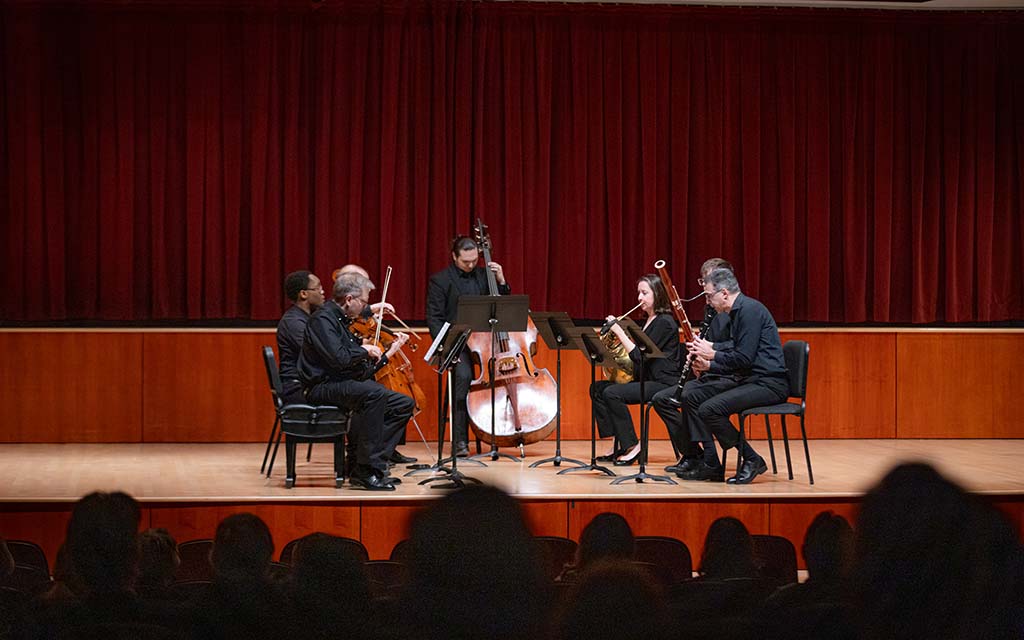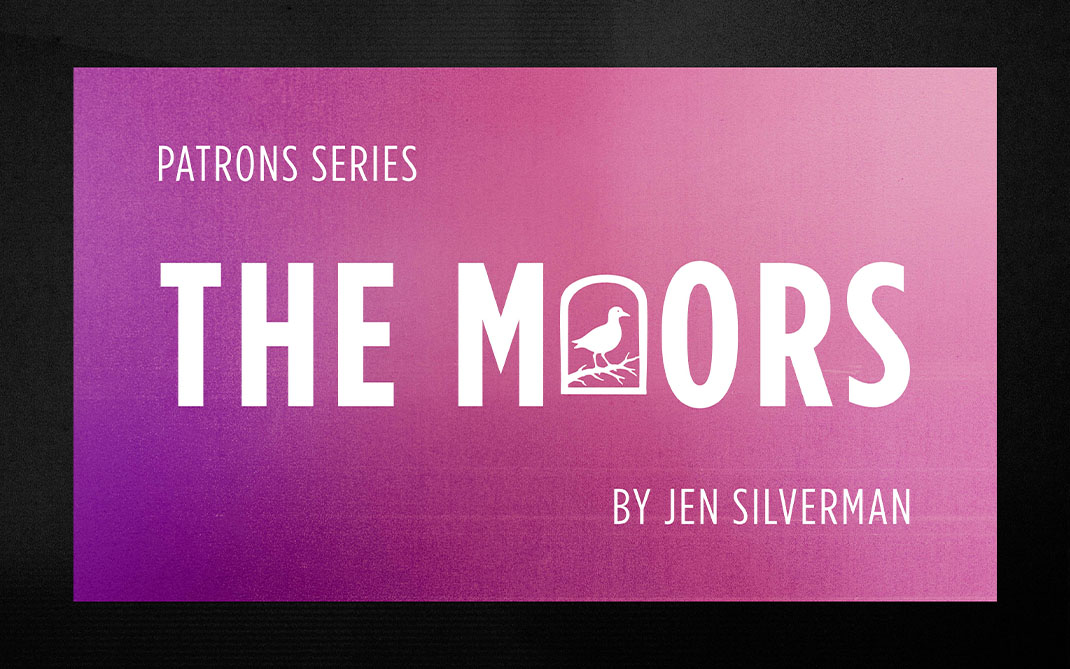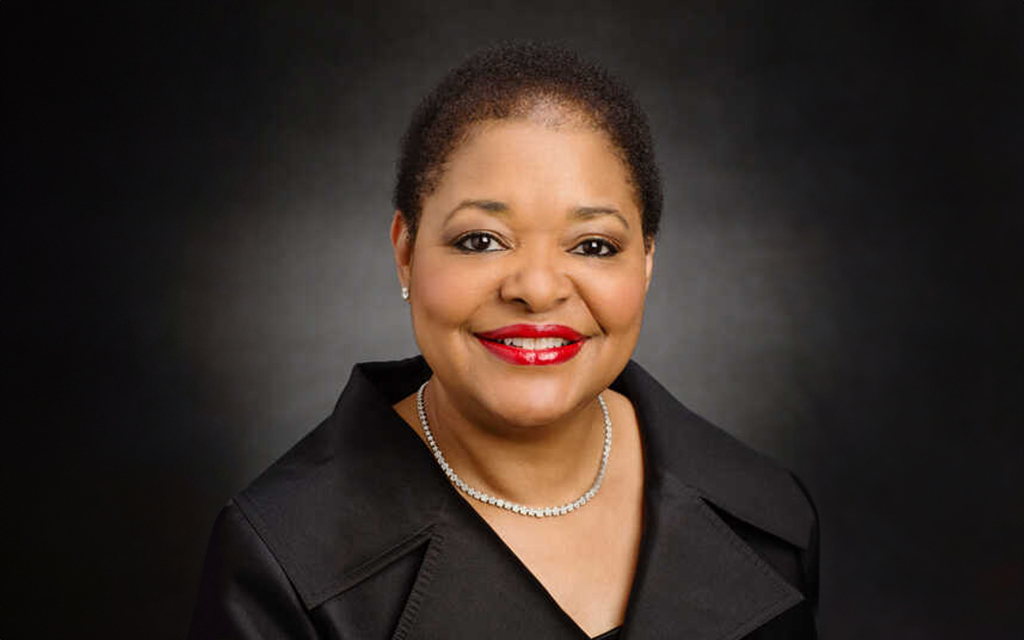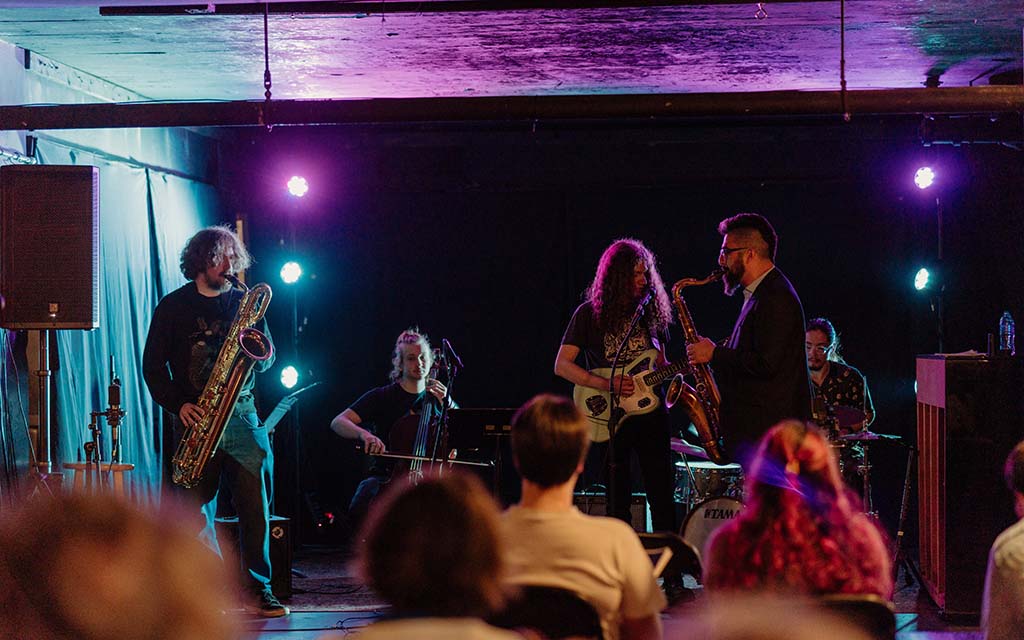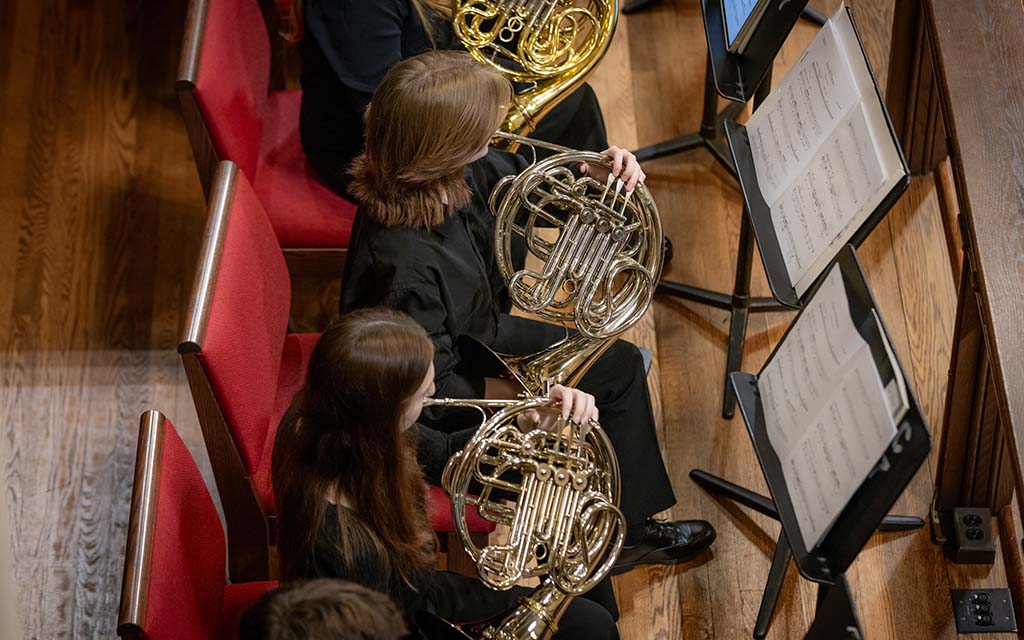Adverse Weather Regulation 101
| Regulation 101 | Approved: February 26, 2025 |
| UNIVERSITY OF NORTH CAROLINA SCHOOL OF THE ARTS Adverse Weather Regulation Regulation 101 |
|
| Source of Authority: | Office of State Personnel Manual § 5, pp. 38-40.4; N.C.G.S. § 116-34(a); UNC Code § 502(A) |
| Revision Authority: | Chancellor |
| History: |
First Issued: February 17, 2011 Revised: December 10, 2020 Revised December 12, 2022 Revised February 26, 2025 |
| Related Policies and Regulations: | Adverse Weather & Emergency Closings, OSP Manual § 5, pp. 38-40.4; Business Continuity Plan Regulation 104; Email Regulation 502; Emergency Management Regulation 701; On-Call and Emergency Callback Regulation 622 |
| Responsible Offices: | Human Resources Department Department of Police & Public Safety |
| Effective Date: | February 26, 2025 |
I. Purpose:
This policy establishes a plan for handling imminent or immediate adverse winter weather conditions that may pose a safety concern for the UNCSA community or those utilizing the facilities and services of UNCSA. Furthermore, it establishes guidelines for accounting for time and for releasing employees from work when natural conditions prohibit some employees from reporting to work or emergency conditions necessitate suspending operations or closing state offices.
II. Scope:
This policy provides guidance for all UNCSA employees and students when adverse weather conditions impact normal operations.
III. Definitions:
A. "Adverse Weather" and "Other Conditions of a Serious Nature" mean conditions that may prohibit some employees from reporting to work but that do not necessitate the curtailing of operations or closing of facilities.
B. "Delays" occur when campus conditions are safe enough for operations; however, conditions in the surrounding areas may hamper the travel of faculty, staff, and students.
C. "Emergency Events" occur when campus conditions are unsafe for normal pedestrian or vehicular traffic. Conditions on campus are hazardous to life or safety, including, but not limited to: catastrophic life threatening weather (significant snow, ice, hurricane, tornado, earthquake, flood or other natural disaster), fire, equipment failure, disruption of power and/or water, contamination by hazardous agents, terrorist acts or forced evacuations from the agency or work site, and other similar events or conditions.
D. "Mandatory Employees" or "Emergency Employees" means employees who are required to work during an emergency because their positions have been designated by UNCSA as emergency and/or essential to University operations during emergencies.
E. "Regular Workday Hours" means schedules starting at approximately 12 a.m. and ending at approximately 11:59 p.m.
IV. Policy:
A. General Policy
1. The UNC System Adverse Weather Policy went into effect on Jan. 1, 2016. The University of North Carolina School of the Arts (UNCSA) has its own Adverse Weather and Other Emergency Conditions Policy that our staff, faculty, and students will follow. It is based on the UNC System’s policy.
2. The Provost has been given delegated authority to determine and announce all decisions to delay or cancel activities of the University related to adverse weather or other emergency conditions. This designation of authority is given due to the position's responsibility for the educational mission of the University and fulfilling the educational outcomes for students. All decisions will be made with safety as the top priority, and in collaboration with the Adverse Weather Team who will provide critical input regarding potential campus impacts. Should the Provost be unreachable or unavailable to make the decision, a designee from the Provost's office will provide input on impacted events related to the educational mission of the University, and delegated authority to delay or cancel activities will move to the Chief of Police. Note: Public announcements about closings or late openings applicable to other State agencies, or to other State employees, may not apply to UNCSA or its employees.
V. Revision History
A. February 17, 2011 - Adopted by the Board of Trustees as part of the UNCSA Policy Manual
B. April 24, 2017 - Revised to reflect the UNC System Adverse Weather and Emergency Policy.
C. December 10, 2020 - Revised to reflect streamlined procedures and access control information.
D. December 12, 2022 - Revised to reflect the UNC System Adverse Weather and Emergency Policy.
E. February 26, 2025 - Revised to reflect streamlined procedures, designees and updated communcations platforms.
University of North Carolina School of the Arts
Adverse Weather Procedures
Procedure #101
I. Procedures for Delayed Opening, Reduced or Suspended Operations, Emergency Closure
A. Responsibilities – Decisions to Change Condition Status
i. Prior to the Decision to Change Condition Status or Delay Opening:
1.) The Emergency Manager or their designee will:
a. Monitor the weather preparedness services for any announcement of upcoming or imminent adverse weather events and provide timely, relevant updates to the Chief of Police.
b. Notify on-duty UNCSA Police personnel of any upcoming or imminenet adverse weather event. If after hours, check in with on-campus Police personnel regarding campus conditions.
c. Coordinate check-ins with the Winston-Salem area University Emergency Managers to share information and determine what each campus is considering for their respective schools.
d. Keep the Adverse Weather Team apprised of forecast and information upon notification of impending weather event. This communication will occur via a dedicated group on Microsoft Teams. If after business hours, Emergency Manager will contact Adverse Weather Team members by other means (i.e. text, phone call) to alert them to monitor Teams.
e. The Adverse Weather Team shall include:
i. Police/Emergency Management
ii. Provost/Academic Affairs
iii. Strategic Communications
iv. Facilities
v. Student Affairs
vi. Vice Chancellor for Finance and Administration
f. If the weather event is expected to impact the area within 24 hours; WSFC public schools or other area universities have made an announcement; the Adverse Weather Team has been engaged; or if it is otherwise deemed necessary, work through Strategic Communications to send a UNCSA ALERT (via RAVE) notifying campus that "we are monitoring the weather" and if/when the next update will occur.
g. The Emergency Manager will schedule a virtual meeting via Teams of the Adverse Weather Team to gather information from campus constituents to provide input to the Provost regarding potential University impacts of decisions. If possible, there will be at least one hour from the time of notice to the actual meeting time to allow the Adverse Weather Team to gather information that may impact the decision.
h. On the Adverse Weather Team meeting/conference call, the Emergency Manager will report:
i. Weather forecast briefing
ii. Information from area universities and WSFC public schools
i. On the call, the Emergency Manager will lead a check-in regarding campus preparation efforts, campus conditions, potential impacts and affected activities. Team members will report input gathered prior to the call from their respective constituent areas of the University (i.e. Provost Office to gather information from deans, admissions, performance facilities).
2. After gathering the impact information from all affected parties via the Teams meeting/call, the Chief of Police or their designee, in consultation with the Emergency Manager, will:
a. Either on the call or afterward, make a recommendation regarding the opening, emergency closing, or delaying of campus operations considering all of the information presented, including, but not limited to: weather status, travel advisory status, conditions on public roadways surrounding the campus, conditions affecting vehicular and pedestrian traffic on campus, input from UNCSA Facilities Management, other area schools, and any other relevant input regarding opening, closing, or delaying campus operations.
b. If the recommendation is made after the information-gathering call is completed, contact the Provost or designee to provide them with a thorough, up-to-date briefing and discuss a recommendation regarding opening on-time, early morning delay, or emergency closing.
3. The Provost or their designee will:
a. Make the decision to open on time or have a delayed opening, reduce operations, suspend operations or recommend to the UNC System emergency closure status (Condition 1, 2, 3, or no change).
i. This includes the decision regarding UNCSA performances, as well as evening and weekend non-public activities, including rehearsals, screenings, filming, and testing (such as SATs).
b. Inform the Adverse Weather Team of the decision (in particular, the Chief of Police, Emergency Manager, and Strategic Communications).
c. Inform the Associate Vice Chancellor and Chief Human Resources Officer or designee of the decision.
ii. Upon decision to Delay Opening, Reduced Operations, Suspended Operations or Closure:
1. Physcial Security Integrations, Commerce, and One-Card Management (PSICOM) and the UNCSA Police Department will work collaboratively to ensure that all campus buildings are properly secured.
2. Strategic Communications will coordinate communications to include:
a. Sending a UNCSA ALERT (via RAVE) regarding the decision. Strategic Communications wll draft the alert message for review by the emergency manager and send it. If there is an imminent threat to safety, the Emergency Manager will take over all communications.
i. The UNCSA ALERT message is delivered to faculty, students, and staff, by:
1. Text
2. Email
3. UNCSA Website (red bar on homepage)
4. UNCSA social media (Facebook and X)
5. Digital Signage
6. Safety App
7. Desktop Notification
ii. Further detail regarding impacted activities can be included on the UNCSA ALERT webpage linked from the UNCSA ALERT if necessary.
b. Strategic Communications will post status to TV station websites on Weather Media Notification List.
c. Immediately following the decision meeting, the Provost's Office will call an implementation meeting with deans, student affairs, campus police, facilities and any additional constituents necessary to discuss what steps to take to effectively enact the decisions made by the Adverse Weather Team.
d. All other Adverse Weather Team members will inform their constituents of the decision so that they may begin preparations and any necessary communications specific to their audiences, i.e.:
i. Deans or reps of the affected arts schools will handle communications to their students regarding opening of studios (in consultation with the Police Department) for retrieval of instruments, practice, etc.
ii. For evening and weekend non-public activities, including rehearsals, screenings, filming, and testing (such as SATs), the deans or representatives of the affected arts school and/or academic department notifies participants regarding any cancellations or changes.
iii. Communications to targeted audiences will be handled by the department that "owns" the audience or event. This includes:
1. Admissions will handle communications to tour groups, Preview Day groups, and groups auditioning for UNCSA.
2. Sponsor organization will handle communications for non-UNCSA events taking place on campus.
3. Residence Life will handle communcations to students who need to be notified of changes to Student Commons and Dining schedules.
4. Community Programs will handle communications to their enrolled students.
e. UNCSA performance status communications will include:
i. The initial UNCSA ALERT will include the status of performances.
ii. Strategic Communications will send out an email to ticketed patrons regarding status of performance.
iii. Strategic Communications will post status to TV station websites on the Weather Media Notification List.
3. The UNCSA Police Department Officer in Charge will:
a. Ensure that, as the storm progresses, they and on duty officers, thoroughly inspect the condition of the UNCSA roadways, parking areas, walkways, steps, paths, and facilities for any safety-related concerns. Safety-related concerns include, but are not limited to:
b. Accumulated snow or ice creating a significant safety hazard for the normal operation of vehicular traffic on campus.
c. Icy walkways or steps creating a significant hazard for pedestrians walking between buildings or across campus grounds.
d. Flooding, sleet, snow, and/or ice creating a significant hazard for vehicles traveling to/from UNCSA properties.
e. Damaged or downed physcial obejects (glass, poles, infrastructure) blocking access or creating a hazard.
f. Contact the Grounds Manager, Director of Mechanical Maintenance, and Associate Vice Chancellor of Facilities to collaboratively assess and determine if they can adequately resolve safety-related concerns in a timely fashion.
g. Once adverse weather begins, provide hourly updates to the Emergency Manager and Grounds Manager. The Emergency Manager will relay campus conditions to the Adverse Weather Team:
i. Weather status (advisory, watch, warning);
ii. Travel advisory status (snow alert, snow emergency);
iii. Conditions on public roadways surrounding the campus;
iv. Conditions affecting vehicular and pedestrian traffic (snow covered/icy walkways, steps, etc.) on campus;
v. Input from any On-Site Facility Management; and
vi. Any considerations or input regarding a continuation or change in the decision to delay opening, reduce operations, suspend operations or closure.
4. The Department of Human Resources is responsible for reporting all closings for this policy of adverse weather on the prescribed form(s) to UNC System Human Resources no later than 48 hours following the end of the event.
II. Adverse Weather Policy Condition Status Definitions and Impacts
A. Under the UNC System Adverse Weather policy there are three Adverse Weather Conditions: Condition 1 - Reduced Operations, Condition 2 - Suspended Operations, and Condition 3 - Closure. These Adverse Weather Conditions are described below with additional information relevant to UNCSA procedures. A direct comparison of each condition's factors is included in letter F.
1. Condition 1 – Reduced Operations
a) The University is open, but some operations may be reduced and classes may be canceled.
b) If the Provost announces that classes are being held under Adverse Weather Condition 1, the following rules apply:
i. Students who miss scheduled activities will be allowed to make up any work missed. Student absences due to weather will be excused.
ii. Faculty members should make arrangements to complete all interrupted activities.
iii. Individual faculty may use discretion to adjust their own class schedules and arrange any make-up work.
c) Non-mandatory employees can decide to leave early, arrive late, or not report. However, the employee is responsible for informing their supervisory chain in a timely manner of all such decisions. Employees must use leave for any work time missed during a Condition 1. Alternatively, and only with supervisor approval, these employees may work from home or an alternative site.
d) Mandatory employees must report to or remain at work unless otherwise notified.
e) UNCSA Access Control: The campus’ Building Access Control System will be placed in a controlled state. Doors that are normally scheduled to be unlocked will require card access. Existing card access permissions for students, faculty, staff, and other authorized users will remain unchanged.
2. Condition 2 – Suspended Operations
a) Classes are canceled.
b) All non-mandatory operations are suspended.
c) Non-mandatory employees must not report or must leave campus. They must use leave if not working. Alternatively, and only with supervisor approval, these employees may work from home or an alternate site.
d) Mandatory employees must report to or remain at work unless otherwise notified. Non-residential students must not report or must leave campus.
e) UNCSA Access Control: The campus’ Building Access Control System will be placed in a controlled state and card access will be disabled for all students and non-mandatory faculty/staff. Residential students will retain access to residence halls and Hanes Student Commons. Mandatory staff will retain access as normal.
3. Condition 3 – Closure
a) Classes are canceled.
b) Offices and facilities are closed.
c) Non-mandatory employees must not report to work and must leave campus. These employees are not required to use personal leave when absent from work.
d) Mandatory employees must report to or remain at work unless otherwise notified.
e) Non-residential students must not report, or must leave campus.
f) UNCSA Access Control: The campus’ Building Access Control System will be placed in a controlled state and card access will be disabled for all students and non-mandatory faculty/staff. Residential students will retain access to residence halls and Hanes Student Commons. Mandatory staff will retain access as normal.
B. Reporting and Pay Policies:
1. Condition 1 - Reduced Operations
a) Employees
i. Mandatory Employees. Mandatory employees (those designated) are required to report to work or remain at work.
ii. Non-Mandatory Employees. Other employees are encouraged to report to work or remain at work. However, the University recognizes that factors such as transportation, school closings, and other childcare arrangements are considerations, and non-mandatory employees are permitted to determine for themselves whether they should report and can do so safely. Faculty who have scheduled classes – but who are unable to report on a day when classes are being held under adverse weather advisory – should make every effort to notify class participants in advance to the extent possible of class cancellation.
iii. On a specific event/condition basis, other employees may be required to report to work. Employees are responsible for ensuring they can be reached via valid contact information.
b) Pay and Time Reporting
i. Non-Mandatory Employees. Under Condition 1, leave-earning SHRA (Subject to the Human Resources Act) and EPS (Exempt Professional Staff) non-mandatory employees may use comp time (SHRA employees only), annual leave, or bonus leave for missed work time. With supervisor approval, employees may work from an alternative location. If no paid leave is available, employees may take leave without pay. Alternatively, employees may be permitted to make up the absence within 90 days at a time mutually agreeable to their supervisor based on departmental need. Time not made up within the 90-calendar day period will be charged against annual or bonus leave if available or adjusted from pay. Employees who are on approved leave during an adverse weather event will still charge the approved sick, annual, bonus, or comp leave with no provision for make-up time. "Make-up" time shall not be subject to any premium pay, with the exception of FLSA-mandated overtime, when applicable.
ii. Mandatory Personnel. Must report to work or remain at work.
2. Condition 2 - Suspended Operations
a) When the University is under suspended operations, faculty, non-mandatory staff and non-residential students must not report, or must leave campus except:
i. Mandatory Employees - Employees must make necessary arrangements to report to work as quickly and safely as possible. Failure to report when required may result in disciplinary action; and the University may also take the unusual measure of “calling-in” employees who are not normally designated as “mandatory” and temporarily assign them to this status, if a specific adverse weather event is critical enough to require it. Employees are responsible for ensuring they can be reached via valid contact information.
b) Pay and Time Reporting
i. Non-Mandatory Personnel. Under Condition 2, leave-earning SHRA and EPS employees, whose presence is not required, may use leave for any missed work time. If no paid leave is available, employees may take time off without pay. Alternatively, employees may be permitted to make up the absence within 90-calendar days at a time mutually agreeable to their supervisor based on departmental need. Time not made up within the 90-calendar day period will be charged against leave if available or adjusted from pay. Employees who are already out on approved leave during an adverse weather event will still charge the approved leave with no provision for make-up time. "Make-up" time shall not be suject to any premium pay, with the exception of FLSA-mandated overtime, when applicable.
“Make-up” time shall not be subject to any premium pay, with the exception of FLSA-mandated overtime, when applicable.
-
-
-
- Mandatory Employees. SHRA non-exempt (subject to FLSA) employees who are required to work during Condition 2 will be granted equivalent paid time off for hours worked on an hour-for-hour basis to be used at a future date. This time should be utilized before using other accrued paid time off (such as annual or bonus leave) as it cannot be paid out and must be used within twelve (12) months or forfeited. In addition, SHRA employees who are FLSA non-exempt will receive overtime compensation (at time-and-a half), in either comp time or pay, for all hours worked over forty (40) in the affected work week. SHRA employees who are FLSA exempt are not eligible to receive equivalent paid time off for hours worked.
-
-
3. Condition 3-Closure
a) Presence on Campus. When the University is closed, faculty, staff and non-residential students must not report, or must leave campus except:
-
-
- Mandatory Employees. All or only a limited number of mandatory employees may be directed to remain at or report to work under this condition. Those employees must make necessary arrangements to report to work as quickly and safely as possible. The University may also take the unusual measure of "calling-in" employees who are not normally designated as “mandatory” and temporarily assign them to this status, if a specific adverse weather is critical enough to require it. Employees are responsible for ensuring they can be reached via valid contact information.
-
b) Pay and Time Reporting
-
-
- Non-Mandatory Employees. Employees will not be docked pay, nor will they be required to make up the work time or report missed time as leave.
- Mandatory Employees. SHRA non-exempt (subject to FLSA) employees who are required to work during Condition 3 will be granted equivalent paid time off for hours worked on an hour-for-hour basis to be used at a future date. This time should be utilized before using other accrued paid time off (such as annual or bonus leave) as it cannot be paid out and must be used within twelve (12) months or forfeited. In addition, SHRA employees who are FLSA non-exempt will receive overtime compensation (at time-and-a half), in either comp time or pay, for all hours worked over forty (40) in the affected work week. SHRA employees who are FLSA exempt are not eligible to receive equivalent paid time off for hours worked.
-
C. Frequently Asked Questions
1. The University is under a Condition 2- suspended operations for adverse weather. I am not a mandatory employee, but my roads seem safe. Can I come into work so I don’t have to make up the hours?
Answer: No, only mandatory employees are allowed to be on campus during a Condition 2 or 3 adverse weather event.
2. I am a mandatory employee and cannot get to work due to the weather. What am I supposed to do?
Answer: Mandatory employees are necessary for the operation of the University. If a mandatory employee cannot get to work due to weather, he/she should contact the supervisor/manager as soon as possible. The employee will need to use leave time or make up the time within 90 calendar days of the weather event with supervisor approval. The employee may be subject to disciplinary action as well.
3. I thought we had 12 months to make up adverse weather time. Why is it only 90 calendar days now?
Answer: The Office of State Human Resources (OSHR) changed the policy on January 1, 2015, to reducing the time to 90 calendar days to make up adverse weather leave. This is also part of the UNC adverse weather policy.
4. I heard I can work from home during adverse weather. Is that true?
Answer: The new adverse weather policy gives more flexibility to be able to work from home or an alternative location with supervisor approval.
5. If I am out sick, on a vacation day off or on FMLA during adverse weather, what happens?
Answer: The adverse weather rules state that you must use your sick day, vacation day or FMLA even if the University is under an adverse weather condition.
6. How do I track adverse weather in my Leave Report?
Answer: Refer to Human Resource Leave Administration web page for tracking leave.
D. UNC System Reference Chart for Adverse Weather
|
Adverse Weather Condition Level |
Students & Faculty |
Non-Mandatory Employees (Staff) |
Mandatory Employees (Staff) |
|
Condition 1 Reduced Operations |
Classes are being held. Individual faculty may adjust class schedules and allow for work to be made up. |
Non-mandatory employees should make a good faith effort to remain at or report to work taking reasonable precautions and judgments for personal safety. Employees must use leave if not working. Under this condition, employees may be able to make up adverse weather time within 90 calendar days with supervisor approval. With supervisor approval, employees may work from home or an alternate site. |
Employees must report to work or remain at work unless notified by a supervisor. |
|
Condition 2 Suspended Operations |
Classes are canceled. Non-residential students must not report or must leave campus. |
Employees must not report to campus or must leave campus. Employees must use leave if not working. Under this condition employees may be able to make up adverse weather time within 90 calendar days with supervisor approval. The University may also take the unusual measure of “calling-in” employees who are not normally designated as “mandatory” and temporarily assign them to this status, if a specific adverse weather is critical enough to require it. Employees are responsible for ensuring they can be reached via valid contact information. |
Employees must report to work or remain at work unless notified by a supervisor. |
|
Condition 3 Closure |
Classes are canceled. Non-residential students must not report, or must leave campus. |
Employees must not report to campus or must leave campus. Employees do not use leave nor have to make up this time if not working. |
All or only a limited number of mandatory employees may be directed to remain at or report to work under this condition. |
E. Types of National Weather Service Communications
-
- Outlook- An outlook is issued by the National Weather Service when significant winter precipitation is possible in the next three to five days. It serves as a recommendation to monitor later forecasts and information.
-
- Snow or Winter Storm Advisory- An advisory is issued by the National Weather Service indicating that winter precipitation (snow, sleet, etc.) is possible, but it is not expected to produce significant risks to life and/or property. However, it still may impact travel or other activities.
-
- Snow Alert- A broadcast is issued indicating that roadways are hazardous with blowing and drifting snow. It is provided as counsel to travel if necessary, but to exercise reasonable caution for the conditions.
-
- Snow Emergency- A broadcast is issued indicating that roadways are extremely hazardous and closed to non-emergency personnel. Travel is restricted to those that travel because it is absolutely necessary.
-
- Winter Storm Warning- A warning is issued by the National Weather Service local office indicating that a winter storm is either imminent or has been reported. A warning indicates the need to take action to protect life and property.
-
- Winter Storm Watch- A watch is issued by the National Weather Service indicating that a winter storm is possible, i.e. conditions are more favorable than usual for it to occur. This is a recommendation for planning, preparation, and increased awareness (i.e., to be alert for changing weather, listen for further information, and think about what to do if the danger materializes).
F. Combined UNC System Condition Levels and UNCSA Policy Chart:
|
Adverse Weather Condition Level |
Students & Faculty |
Non-Mandatory Employees (Staff) |
Mandatory Employees (Staff) |
UNCSA Application to Presence on Campus |
UNCSA Access Control |
UNCSA Pay and Time Reporting |
|
Condition 1 Reduced Operations |
Classes are being held. Individual faculty may adjust class schedules and allow for work to be made up. |
Non-mandatory employees should make a good faith effort to remain at or report to work taking reasonable precautions and judgements for personal safety. Employees must use leave if not working. Under this condition, employees may be able to make up adverse weather time within 90 calendar days with supervisor approval. With supervisor approval, employees may work from home or an alternate site |
Employees must report to work or remain at work unless notified by a supervisor. |
Mandatory Employees. Mandatory employees (those designated) are required to report to work or remain at work. Non-Mandatory Employees. Other employees are encouraged to report to work or remain at work. However, the University recognizes that factors such as transportation, school closings, and other childcare arrangements are considerations, and non-mandatory personnel are permitted to determine for themselves whether they should report and can do so safely. Faculty who have scheduled classes – but who are unable to report on a day when classes are being held under adverse weather advisory – should make every effort to notify class participants in advance to the extent possible of class cancellation. On a specific event/condition basis, other employees may be required to report to work. Employees are responsible for ensuring they can be reached via valid contact information. |
The campus Building Access Control System is placed in a controlled state and normally assigned card access will remain available. Doors that are normally unlocked will be card accessible only during the controlled state. |
Non-Mandatory Employees. Under Condition 1, leave-earning SHRA (Subject to Human Resources Act) and EPS (Exempt Professional Staff) non-mandatory employees may use comp time (SHRA employees only), leave for missed work time. With supervisor approval, employees may take leave without pay. Alternatively, employees may be permitted to make up the absence within 90 days at a time mutually agreeable to their supervisor based on departmental need. Time not made up within the 90-calendar day period will be charged leave if available or adjusted from pay. Employees who are on approved leave during an adverse weather event will still be charged for the approved leave with no provision for make-up time. "Make-up" time shall not be subject to any premium pay, with the exception of FLSA-mandated overtime, when applicable. Mandatory Personnel. Must report to work or remain at work. |
|
Condition 2 Suspended Operations |
Classes are canceled. Non-residential students must not report or must leave campus. |
Employees must not report to campus or must leave campus. Employees must use leave if not working. Under this condition employees may be able to make up adverse weather time within 90 days with supervisor approval. With supervisor approval, employees may work from home or an alternate site. |
Employees must report to work or remain at work unless notified by a supervisor. |
When the University is under suspended operations, faculty, staff and non-residential students must not report, or must leave campus except: Mandatory Employees- Employees must make necessary arrangements to report to work as quickly and safely as possible. Failure to report when required may result in disciplinary action; The University may also take the unusual measure of “calling-in” employees who are not normally designated as “mandatory” and temporarily assign them to this status, if a specific adverse weather is critical enough to require it. Employees are responsible for ensuring they can be reached via valid contact information.
|
The campus Building Access Control System is placed in a controlled state and card access will be disabled for all students and non-mandatory faculty/staff. Residential students will retain access to residence halls and Hanes Student Commons. Mandatory staff will retain access as normal. |
Non-Mandatory Personnel. Non-Mandatory Personnel. Under Condition 2, leave-earning SHRA and EPS employees, whose presence is not required, may use leave for any missed work time. If no paid leave is available, employees may take time off without pay. Alternatively, employees may be permitted to make up the absence within 90-calendar days at a time mutually agreeable to their supervisor based on departmental need. Time not made up within the 90-calendar day period will be charged against leave if available or adjusted from pay. Employees who are already out on approved leave during an adverse weather event will still charge the approved leave with no provision for make-up time. "Make-up" time shall not be subject to any premium pay, with the exception of FLSA-mandated overtime, when applicable.
|
|
Condition 3 Closure |
Classes are canceled. Non-residential students must not report, or must leave campus. |
Employees must not report to campus or must leave campus. Employees do not use leave nor have to make up this time if not working. |
Employees must not report to work or remain at work unless notified by a supervisor. |
Presence on Campus. When the University is closed, faculty, staff and non-residential students must not report, or must leave campus except: Mandatory Personnel. Employees must make necessary arrangements to report to work as quickly and safely as possible. Failure to report when required may result in disciplinary action and requires the hours missed to be charged to leave or without pay; and All or only a limited number of mandatory employees may be directed to remain at or report to work under this condition. Employees are responsible for ensuring they can be reached via valid contact information. All other employees, including those who are otherwise designated as mandatory but not needed for the particular event, are not permitted to report to or remain at work. |
The campus Building Access Control System will be placed in a controlled state and card access will be disabled for all students and non-mandatory faculty/staff. Residential students will retain access to residence halls and Hanes Student Commons. Mandatory staff will retain access as normal. |
Non-Mandatory Employees. Employees will not be docked pay, nor will they be required to make up the work time or report missed time as leave. Mandatory Employees. SHRA non-exempt (subject to FLSA) employees who are required to work during Condition 3 will be granted equivalent paid time off for hours worked on an hour-for-hour basis to be used at a future date. This time should be utilized before using other accrued paid time off (such as annual or bonus leave) as it cannot be paid out and must be used within twelve (12) months or forfeited. In addition, SHRA employees who are FLSA non-exempt will receive overtime compensation (at time-and-a-half), in either comp time or pay, for all hours worked over forty (40) in the affected work week. SHRA employees who are FLSA exempt are not eligible to receive equivalent paid time off for hours worked. |
